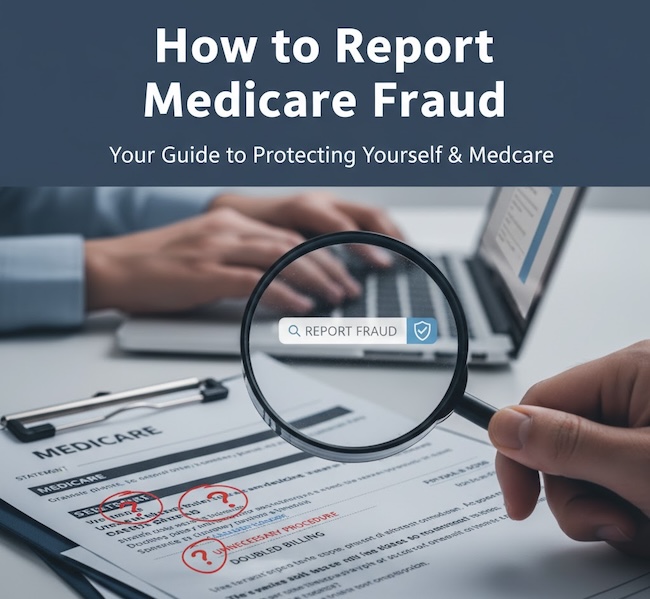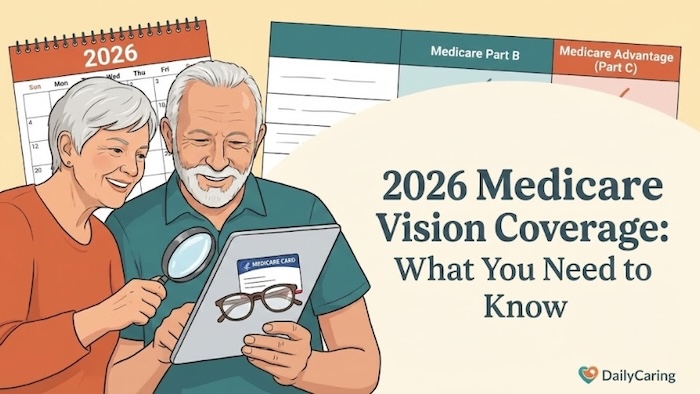Heart disease remains the leading cause of death in the United States, making preventive care and affordable treatment critical for older adults. As we move into 2026, Medicare has introduced significant changes, particularly in prescription drug costs and recovery services, that every beneficiary should know about.

Medicare-Covered Preventive Care
Early detection is the best defense against cardiovascular events. Typically, Medicare Part B covers 100% of these preventive services with no deductible or coinsurance required:
- Cardiovascular Screenings: Covered once every 5 years. This includes blood tests for cholesterol, lipid, and triglyceride levels.
- Behavioral Therapy: One annual visit with a primary care provider to discuss blood pressure management, aspirin use, and heart-healthy nutrition.
- Annual “Wellness” Visit: An opportunity to develop or update a personalized prevention plan with your doctor.
Cardiovascular Disease Treatments
If a heart condition is diagnosed, Medicare provides coverage for both inpatient surgeries and outpatient recovery:
- Cardiac Rehabilitation: These programs are covered for up to 36 sessions. In 2026, Medicare continues to allow virtual “direct supervision” for these sessions, meaning some rehabilitation services can be managed via real-time audio/video technology.
- Cardiac Devices: Pacemakers and defibrillators are generally covered. Implantation is covered under Part A if done as an inpatient, or Part B if performed in an outpatient setting.
- Chronic Care Management: For those with two or more serious conditions (such as heart disease and diabetes), Medicare covers a comprehensive care plan to coordinate care across different doctors.
Significant Changes to Heart Medication Costs in 2026
2026 is a milestone year for prescription drug affordability, driven by the Inflation Reduction Act.
1. Lower Negotiated Prices: For the first time, Medicare has negotiated lower prices for 10 of its most expensive drugs. This includes widely used heart medications like Eliquis, Xarelto, and Entresto.
2. $2,100 Out-of-Pocket Cap: In 2026, the annual out-of-pocket limit for Part D prescription drugs is $2,100. Once you hit this limit, you pay $0 for covered medications for the rest of the year.
3. Extra Help Expansion: The “Extra Help” program now provides full benefits to anyone with an income up to 150% of the federal poverty level, helping more seniors pay for heart prescriptions.
2026 Medicare Cost Breakdown
Below are the updated standard costs for Original Medicare in 2026:
| Service | 2026 Cost / Deductible |
|---|---|
| Part A Hospital Deductible | $1,736 per benefit period |
| Part A Coinsurance (Days 61–90) | $434 per day |
| Part B Monthly Premium | $202.90 (standard) |
| Part B Annual Deductible | $283 |
| Part D Out-of-Pocket Cap | $2,100 |
Choosing the Right Plan: Medigap vs. Advantage
- Medigap (Supplemental Insurance): These plans help pay the “gaps” in Original Medicare, such as the 20% coinsurance for doctor visits or the $1,736 hospital deductible. It is ideal for those who want predictable costs and the freedom to see any Medicare-accepting doctor.
- Medicare Advantage (Part C): These plans often include additional benefits such as transportation to medical appointments or fitness programs. However, they usually require you to stay within a specific network of doctors.
Summary Checklist for Heart Health
- [ ] Schedule your free cardiovascular screening if it has been 5 years.
- [ ] Review your Part D formulary to see if your heart medications are among the 10 newly negotiated drugs.
- [ ] Ask your doctor if telehealth cardiac rehab is an option for your recovery plan.
BONUS LIST: 10 High-Cost Medications with Newly Negotiated Prices as of January 1, 2026
Many of these drugs are foundational for managing heart failure and preventing dangerous blood clots:
2026 Negotiated Medicare Drug Prices
These 10 drugs were selected for the first round of Medicare price negotiations due to their high cost and frequent use by beneficiaries. Most of these medications have seen price reductions of 50% to 79% compared to their 2023 list prices.
| Medication Name | Primary Use | 2026 Negotiated Price (30-day supply) |
|---|---|---|
| Eliquis | Blood clot prevention/treatment | $231 |
| Entresto | Heart failure | $295 |
| Xarelto | Blood clot prevention/treatment | $197 |
| Jardiance | Diabetes; Heart failure; Kidney disease | $197 |
| Farxiga | Diabetes; Heart failure; Kidney disease | $178 |
| Januvia | Type 2 Diabetes | $113 |
| Fiasp / NovoLog | Insulin (Diabetes) | $119 |
| Enbrel | Rheumatoid Arthritis; Psoriasis | $2,355 |
| Stelara | Psoriasis; Crohn’s disease | $4,695 |
| Imbruvica | Certain blood cancers | $9,319 |
Key Takeaways for Readers:
- Massive Savings: Medications such as Januvia and insulin (Fiasp/NovoLog) saw the deepest discounts, with price reductions of 79% and 76%, respectively.
- Heart Health Focus: Five of the 10 drugs (Eliquis, Entresto, Xarelto, Jardiance, and Farxiga) are essential for patients managing chronic cardiovascular conditions.
- Effective Date: These lower prices went into effect on January 1, 2026.
Recommended for you:
- What Does Medicare Cover? Find Out Before the Bills Arrive
- Prevent Heart Attack and Stroke with 6 Tips from a Cardiologist
- 6 Ways to Support Seniors with Heart Failure and Improve Quality of Life
About the Author

Chris is a seasoned healthcare executive and entrepreneur from the Pacific Northwest. He strongly advocates for older adults and the caregivers who serve them. Chris has personal experience caring for his father, who had dementia. Chris is an avid outdoorsman; if he's not in his office, he can usually be found on a golf course or in a garden out west somewhere.













